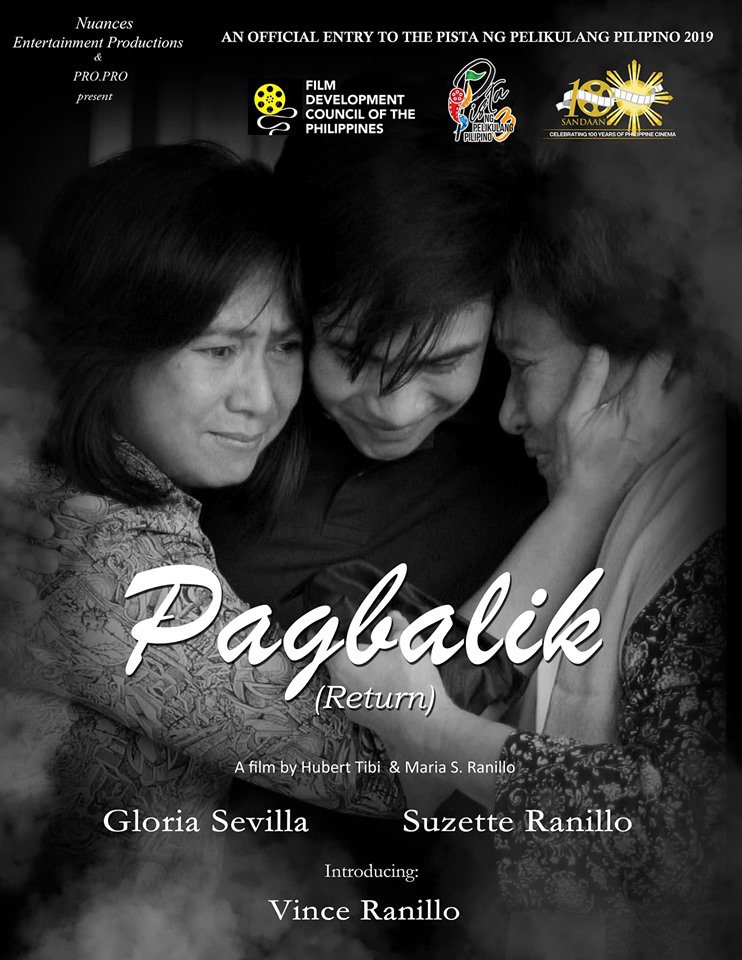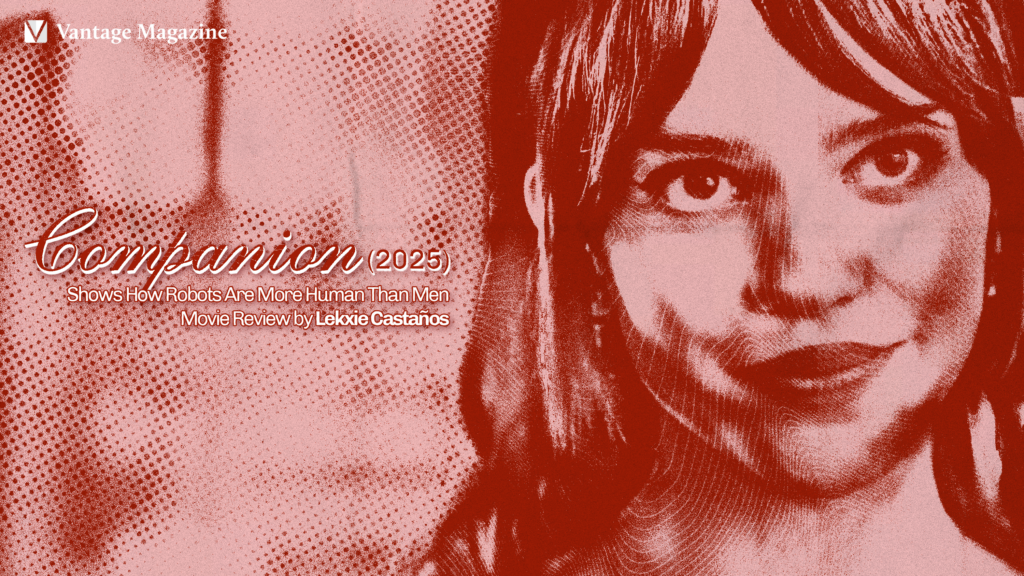“Unsa ba’y sakto? Ang magpabilin aron ako silang ma-atiman, o biyaan sila aron manginabuhi ug mahatagan sila’g hayag nga kaugmaon? (What is right? To stay so I can take care of them, or leave so I can work and give them a brighter future?)”
From the get-go, Hubert Tibi and Maria S. “Suzette” Ranillo’s Pagbalik holds promise as a highly representative local film. It’s set in Mindanao and is the only Pista ng Pelikulang Pilipino 2019 entry written in Visayan. At its core, the film centers on a plight familiar to many Filipinos even beyond Metro Manila: Overseas Filipino Workers’ (OFWs) struggle to connect with those they leave behind. All this gives Pagbalik the potential to wring hearts, but the film just didn’t have enough gas to drive its impact home.
The story follows Rica (Suzette Ranillo), an OFW deported to Cagayan de Oro after years of working in the United States. She flies home to meet her mother Choleng (Gloria Sevilla), who is both elated and surprised by her daughter’s return. While Rica was gone, her son Vincent (Vince Ranillo) looked after his frail grandmother. As family tensions rise, Rica finds herself striving to know her mother and son once again.
Moviegoers looking forward to a tearjerker may find the film either a hit or miss. It’s hard to feel for Vincent when most of his screen time only shows him as a side character caught between his mom and grandmother’s verbal shootout or stuck doing the mundane in the background. Rica has room for character development too, yet she spends more time doing chores or sulking rather than actively trying to reconnect with her family.
Though Vince Ranillo’s acting debut was not bad, it wasn’t anything impressive either. In the few scenes where he does hold the spotlight, he strains to move viewers with expressive emotions, ultimately making his character’s presence almost negligible. On the other hand, though some might be annoyed by Choleng’s short temper, Sevilla does an excellent job of filling the role. In these irritable episodes, Sevilla transforms into a stubborn old woman with a firm conviction. Conversely, she brims with childlike enthusiasm whenever Choleng raves over her favorite chocolates, making the old soul a little easier to empathize with.
The film’s shortcomings in terms of performance are compounded by lapses in visuals and score as well. One may mistake Pagbalik to be set in the past because of its black-and-white filter, but it’s actually set in the modern age. If the goal is to provide a more cinematic feel, then the film certainly misses the mark. Some shots are too shaky, use stammering slow motion, or overuse a dragging zoom-in effect and jarring jump cuts. These are all vain attempts to add drama, but the monochromatic color scheme couldn’t redeem the cinematography from these other faux pas. The soundtrack doesn’t help either, especially since the same background music is repeatedly used in different scenes, though spaced only several seconds apart.
Capping off the list of letdowns is Pagbalik’s dialogue. Viewers who speak Visayan will be disappointed by how awkward some lines sound. The script banks on formal rather than conversational word choice, so the result often sounds forced and unnatural. The main actors fail to deliver their lines with conviction as well (save for Sevilla, but that shouldn’t come as a surprise from the Queen of Visayan Movies).
Pagbalik could have shed light on OFWs’ struggles from a new pair of lenses, but it only leaves us longing for more substance and better execution. The film wastes its potential on editing blunders and shallow characters—making for a ride so underwhelming that a return trip becomes unlikely.






